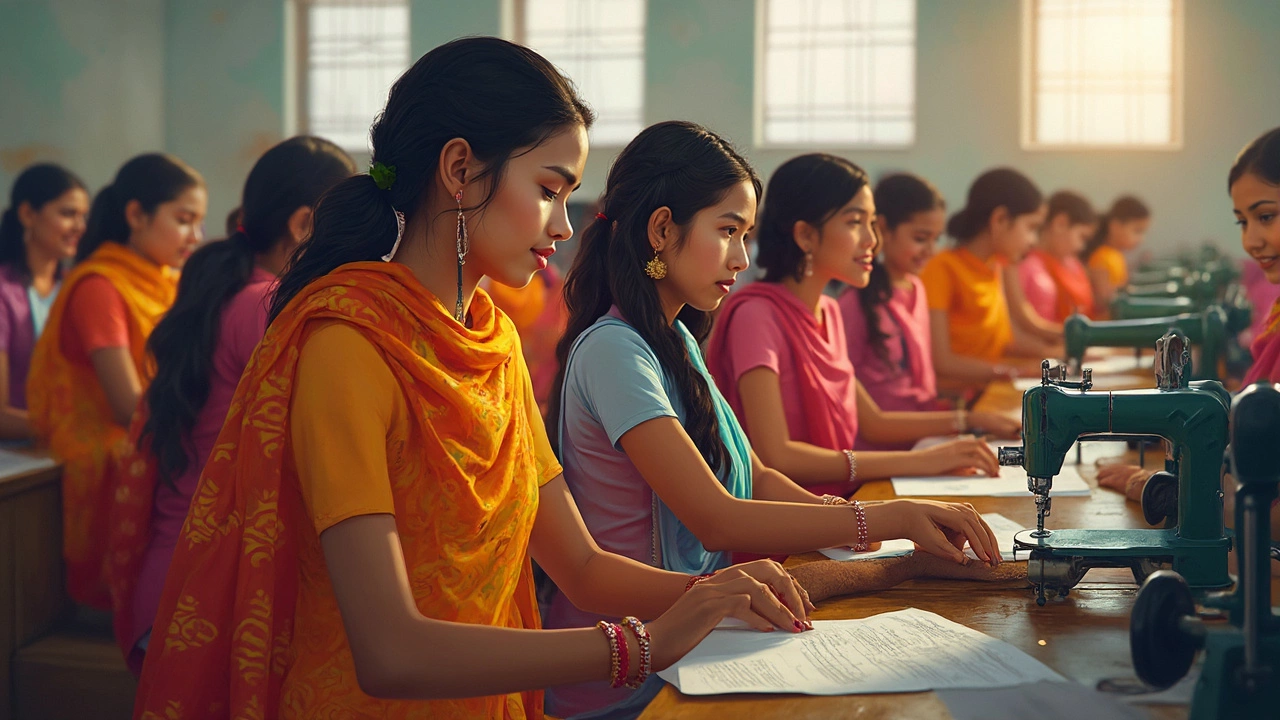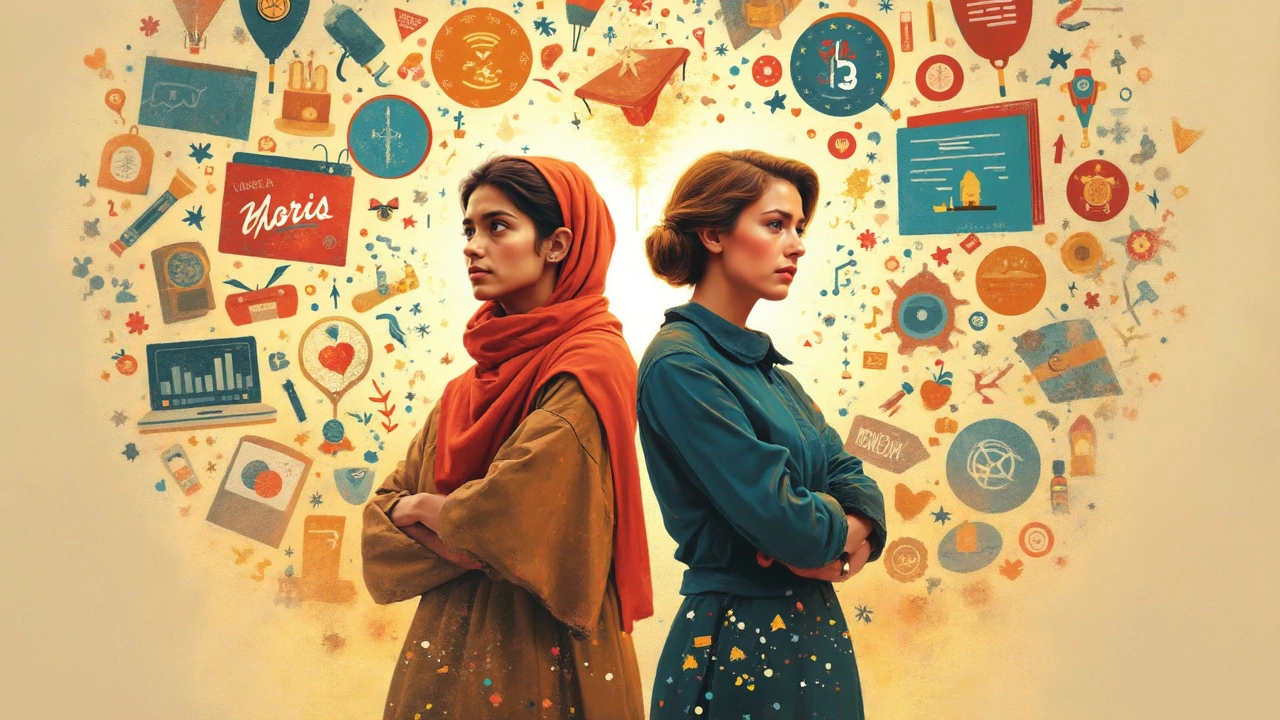
Ever wondered who laid the groundwork for women's equality, especially when it comes to vocational training? It's not just one person, but a series of amazing individuals who raised their voices at different times in history, changing the course for women everywhere.
One of the trailblazers was Eleanor Roosevelt, who used her influence to push for women’s rights and vocational training. Fast forward to today, and we've got Malala Yousafzai fighting for girls’ education globally.
Vocational training is more than just learning a skill; it's empowerment in its truest form. In areas where traditional education is out of reach or not practical, vocational training steps in to provide women with skills to earn a living and gain independence. That’s life-changing, right?
Pioneers of Change
When thinking about advocates for women's equality, names like Eleanor Roosevelt and Simone de Beauvoir come to mind. Roosevelt was one of the first to use her platform as the First Lady of the United States to champion women's rights, emphasizing the importance of education and vocational training. She understood that providing practical skills was a stepping stone to independence for many women, especially during tough times like the Great Depression.
On the other side of the pond, Simone de Beauvoir was stirring things up with her writing. Her book, "The Second Sex," challenged traditional ideas about gender roles and argued for women's economic independence. She was all about providing the right skills to women, ensuring they could work alongside men and break free from being financially dependent.
Rosa Parks is another notable figure whose quiet defiance became a loud declaration for equality. While she’s best known for her role in the civil rights movement, her advocacy stretched into women's rights. She inspired countless women to stand up for their right to equal opportunities, including access to education.
These pioneers were instrumental in laying the groundwork for what we now see as a global movement towards gender equality. Their efforts have paved the way for modern-day initiatives focusing on vocational education, as a key tool for empowerment. They showed that real change requires action, brave voices, and the courage to challenge the status quo.
Impact of Vocational Training
Vocational training is a game-changer, especially for women trying to break into industries where they've been traditionally sidelined. Imagine learning practical skills that can snag you a well-paying job or help you start a business—pretty empowering, right?
In many parts of the world, formal education isn't easily accessible to women due to cultural or economic barriers. Here's where vocational training steps in as a practical alternative. It’s not just about learning how to sew or cook; it’s about acquiring skills in IT, healthcare, and various trades that are in high demand.
Take India, for instance, where programs have been introduced to teach women skills like coding and digital marketing. These programs are opening new doors, allowing women to enter fields that were once out of reach.
Vocational training also helps in boosting the economy. With more women in the workforce, there's an increase in household incomes, and this, in turn, raises the overall standard of living. Studies have shown that when women earn, they reinvest 90% of their income back into their families, compared to 35% for men.
Let's look at some numbers:
| Country | Percentage of Women in Workforce Pre-Training | Percentage Post-Training |
|---|---|---|
| Kenya | 45% | 55% |
| Brazil | 52% | 63% |
| India | 23% | 31% |
These figures clearly show how impactful vocational training can be in increasing female participation in the workforce.
The ripple effect of empowering women through vocational training is massive. It helps break the cycle of poverty, promotes gender equality, and fuels economic growth. More women in work means more diverse viewpoints and better decision-making, which is something every industry can benefit from.

Modern Day Champions
When it comes to pushing for women's equality in vocational training today, there's no shortage of inspiring figures. Malala Yousafzai is a standout advocate, using her prominence to spotlight the need for accessible education for girls worldwide. Malala, with her powerful speeches and tireless campaign work, has inspired many to support vocational education for women, proving that education is not a privilege, but a right.
Then there's Michelle Obama, who launched the 'Let Girls Learn' initiative. Her efforts have been essential in breaking barriers that prevent girls from completing their education. She understands that sometimes the traditional path isn't an option, and vocational training fills that gap, offering practical skills that lead to real jobs.
Not all heroes wear capes; some wear tool belts. Take Reshma Saujani, founder of Girls Who Code. Recognizing the tech industry’s potential, her organization empowers young women with essential coding skills, preparing them for careers in tech fields. Considering that tech jobs are growing rapidly, Saujani's initiative is a game-changer for women seeking independence through vocational skills.
Let's not forget the influence of organizations like UN Women, which partners globally to close the gender gap in skills and employment. They run programs that offer vocational training to women, helping them gain jobs in sectors where they're underrepresented. Check out this interesting stat:
| Region | % of Women in Vocational Training |
|---|---|
| Sub-Saharan Africa | 45% |
| South Asia | 38% |
| Latin America | 50% |
These champs, whether individuals or organizations, drive change by providing women the tools they need to thrive. They remind us that through determination and skill, every woman can carve out her place in any industry she chooses.
Overcoming Challenges
Tackling the hurdles in providing vocational training for women isn't exactly a walk in the park. But guess what? The fight is totally worth it. There's the gender bias in workplaces, lack of resources, and sometimes just plain old resistance to change. Yet, addressing these challenges opens up countless doors for women.
Understanding these struggles, some places have come up with smart ways to make strides. For instance, many communities focus on creating awareness that gets both men and women on board. This mutual understanding can be a game-changer, building a support system that encourages women to pursue their goals.
Funding is often a biggie. Without money, programs can't run, and women can't learn. Fortunately, organizations worldwide are stepping in. Non-profits and government schemes are now providing grants and incentives to schools and institutions that offer vocational training. It’s not just about monetary support; creating scholarships and sponsorship programs is also on the rise. This way, more women have a shot at honing their skills without financial stress.
Check out this neat stat: According to a report from the International Labour Organization, communities that implemented targeted training programs for women saw a 20% rise in local businesses led by women over five years. Impressive, right?
It's a journey, not a sprint. Education and outreach make sure that women not only get the skills but also the confidence to step into the world. Breaking stereotypes and encouraging women to enter non-traditional roles are steps in the right direction. There are even initiatives focusing on sectors like technology and engineering where women have traditionally been underrepresented.
In short, while challenges are there, efforts to offer vocational training for women are paying off. The persistence and creativity in overcoming these roadblocks are key to leveling the playing field. After all, when women thrive, communities prosper.
